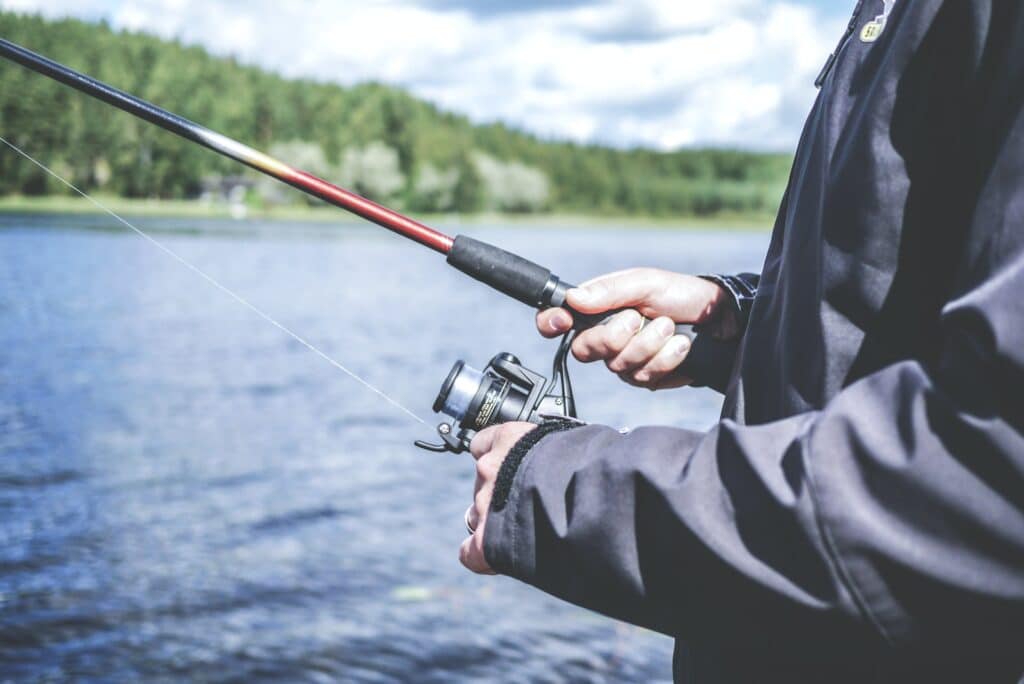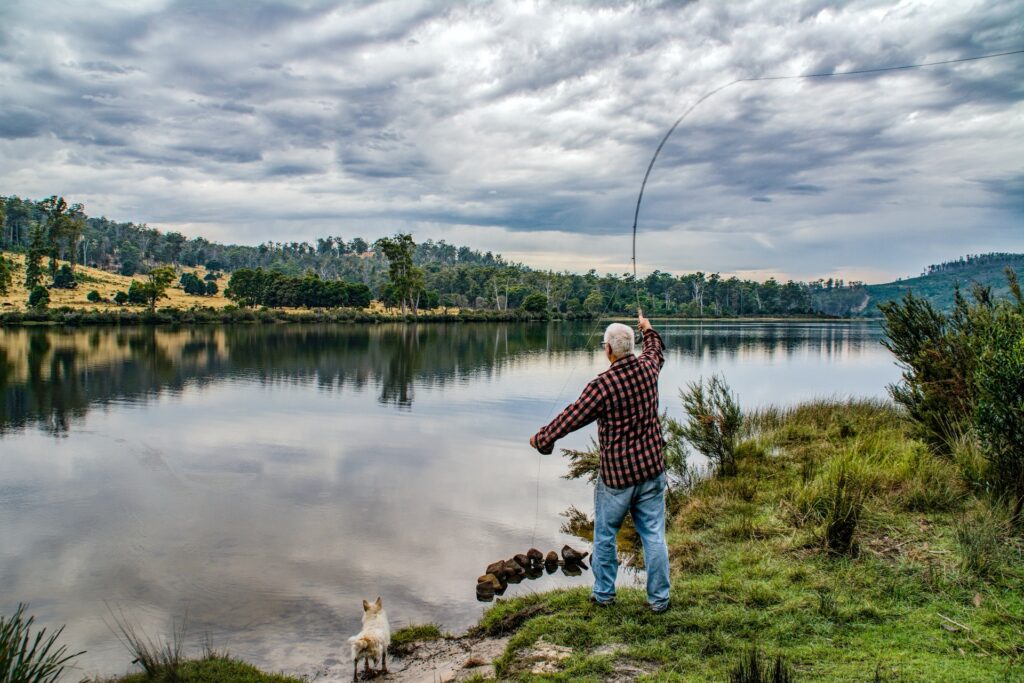A fisherman’s expertise isn’t confined to simply casting nets or baiting hooks; it encompasses a fusion of hard skills, soft skills, and profound understanding of the waterways. As the backbone of fishing operations, a skilled fisherman can significantly impact the success of a company engaged in fishing or aquaculture.
This blog delves into the art of hiring the perfect fisherman, exploring the distinct attributes that make a fisherman exceptional. From honing the essential hard skills of navigating water bodies and handling fishing equipment to cultivating the vital soft skills of teamwork and adaptability, the process of assessing a fisherman’s on-the-job capabilities is both an art and a science. By examining proven methodologies for testing fishing skills and devising job descriptions that attract the right talent, we’ll guide you through the journey of finding and securing the ideal fisherman to fortify your team. So, let’s dive into the depths of this essential hiring process and cast a line towards success in the world of fishing industries.
What is the role of a fisherman?
A fisherman is a skilled professional who specializes in harvesting aquatic resources through various techniques such as fishing, netting, trapping, and angling. Their role extends beyond the tranquil façade of serene waters, as they hold the key to securing the bounties of lakes, rivers, and oceans. In a company’s growth trajectory, a proficient fisherman is more than a mere laborer; they are stewards of sustainable fishing practices and custodians of aquatic ecosystems.
Roles and responsibilities:
Resource Harvesting: Fishermen are responsible for catching a variety of aquatic species using specialized equipment and methods, ensuring efficient and ethical harvests.
Equipment Mastery: They must be skilled in operating and maintaining various fishing tools, such as nets, lines, hooks, and traps, to maximize productivity.
Environmental Awareness: A fisherman’s role involves understanding and respecting the delicate balance of aquatic ecosystems, contributing to sustainable fishing practices.
Safety and Regulation: Adhering to safety protocols and fishing regulations is crucial to prevent overfishing and maintain the health of marine life.
Team Collaboration: Fishermen often work in crews, necessitating effective communication and collaboration to achieve optimal results.
Adaptability: Weather conditions and fish behavior can change rapidly; fishermen must adapt their strategies accordingly to maintain productivity.
Record Keeping: Maintaining accurate records of catches, locations, and fishing techniques aids in data-driven decision-making.
Contribution to Company’s Growth: Fishermen are the frontline contributors to a fishing company’s growth. Their expertise directly impacts the quantity and quality of catches, which in turn affects profitability. By ensuring sustainable practices, they safeguard the company’s reputation and long-term viability. Moreover, skilled fishermen drive innovation by developing new techniques, improving equipment, and collaborating with biologists and researchers for improved yields and resource management.
Tasks done by a fisherman:
- Casting nets and lines to catch fish
- Handling and baiting hooks or traps
- Operating fishing vessels
- Sorting, cleaning, and packaging catches
- Repairing and maintaining fishing gear
- Adhering to fishing regulations and quotas
- Monitoring weather conditions and adapting strategies
- Collaborating with team members during fishing operations
- Keeping detailed records of catches and fishing locations
Hard skills to assess in a fisherman
When evaluating potential candidates for the role of a fisherman, certain hard skills are essential to ensure their proficiency in navigating the waters and reaping the aquatic harvest. Here’s a breakdown of these critical skills and how to assess them:
1. Nautical Navigation: The ability to navigate water bodies confidently using navigational tools such as maps, GPS, and radar systems is crucial. Assess a candidate’s familiarity with water routes, their understanding of navigational instruments, and their capability to chart courses efficiently.
2. Fishing Techniques: Candidates should showcase expertise in a range of fishing techniques, including trawling, longlining, and potting. Inquire about their experience with different methods and their understanding of how these techniques vary based on target species and water conditions.
3. Equipment Proficiency: A skilled fisherman should demonstrate competence in operating and maintaining fishing equipment such as nets, lines, hooks, and traps. During interviews, inquire about their experience with equipment handling and ask them to explain how they maintain gear to ensure optimal performance.
4. Safety Protocols: Understanding and adhering to safety regulations is paramount in fishing. Assess a candidate’s knowledge of safety procedures, emergency protocols, and their track record of preventing accidents during fishing operations.
5. Species Identification: A fisherman must identify various fish species accurately to comply with regulations and avoid unintentional bycatch. Test a candidate’s knowledge of local species, their appearances, and any distinctive characteristics that help differentiate them.
6. Weather Interpretation: Weather conditions impact fishing success and safety. Evaluate a candidate’s ability to interpret weather forecasts, sea conditions, and their decision-making skills in determining whether to proceed with fishing operations.
7. Knot Tying: Proficiency in tying strong and secure knots is essential for attaching hooks, lures, and other components. Ask candidates to demonstrate their knot-tying skills during the assessment process.
8. Net Handling: For roles involving net fishing, assess a candidate’s capability to cast and retrieve nets effectively, avoiding tangling or damage to the gear.
9. Catch Handling: Candidates should exhibit knowledge of proper catch handling techniques to prevent damage and maintain fish quality. Inquire about their methods for minimizing stress to caught fish.
By scrutinizing these hard skills during the assessment process, you can identify candidates who possess the necessary expertise to excel in the role of a fisherman, contributing significantly to your fishing operations and the growth of your company.
Soft skills to assess in a fisherman
Beyond the technical prowess required for fishing, a successful fisherman must possess a set of essential soft skills that enable effective teamwork, adaptability, and sustainable practices. Here’s a comprehensive overview of the crucial soft skills to look for when evaluating candidates for the role of a fisherman:
1. Team Collaboration: A fisherman often works as part of a crew. Assess a candidate’s ability to communicate effectively, share responsibilities, and contribute harmoniously to a team effort. Inquire about their past experiences working in collaborative settings.
2. Adaptability: Fishing conditions can change rapidly. Evaluate a candidate’s capacity to adapt to unpredictable weather, shifting fishing grounds, and unforeseen challenges while maintaining productivity and safety.
3. Problem Solving: Fishing operations can present unexpected obstacles. Candidates should demonstrate quick thinking and resourcefulness in devising solutions for gear malfunctions, catch handling issues, and other on-the-spot problems.
4. Communication Skills: Effective communication is vital for conveying instructions, sharing insights about fishing conditions, and reporting incidents. Gauge a candidate’s clarity, confidence, and attentiveness in their communication style.
5. Environmental Stewardship: A responsible fisherman respects aquatic ecosystems and practices sustainable fishing. Inquire about a candidate’s knowledge of conservation practices and their commitment to minimizing ecological impact.
6. Patience and Endurance: Fishing often demands long hours of waiting and physical labor. Evaluate a candidate’s patience, perseverance, and stamina, as these traits contribute to consistent results in challenging conditions.
7. Time Management: Balancing various tasks during fishing expeditions requires effective time management. Assess a candidate’s ability to prioritize tasks, allocate resources, and maintain a productive workflow.
8. Critical Observation: Candidates should possess keen observational skills to recognize fish behavior, weather patterns, and changes in water conditions. Inquire about instances where their observations led to successful fishing outcomes.
9. Cultural Sensitivity: Fishing often involves interacting with diverse communities and respecting local customs. Assess a candidate’s cultural awareness and their ability to build positive relationships with different stakeholders.
10. Leadership Potential: For roles with supervisory responsibilities, identify candidates who exhibit leadership qualities such as delegation, mentoring, and fostering a positive work environment.
By assessing these soft skills in potential candidates, you can ensure that the chosen fisherman not only possesses the technical proficiency required for the role but also possesses the interpersonal qualities necessary for successful collaboration, adaptability, and ethical fishing practices.

How to test a fisherman’s skills
Evaluating a fisherman’s practical skills is a critical step in finding the right candidate for the role. Utilizing targeted technical tests allows you to assess their competence in real-world fishing scenarios. Here are some essential tests and their significance:
1. Knot-Tying Proficiency Test: Assess a candidate’s ability to tie secure and reliable knots, a crucial skill for attaching hooks, lures, and various fishing components. This test ensures that the fisherman can operate equipment effectively and prevent gear failures.
2. Casting and Retrieval Test: By evaluating a candidate’s casting accuracy and retrieval technique, you gauge their hands-on fishing skills. This test provides insights into their dexterity, coordination, and understanding of casting dynamics.
3. Gear Handling and Maintenance Test: Evaluate how well a candidate handles, assembles, and maintains fishing equipment. This test reflects their familiarity with tools, attention to detail, and commitment to keeping gear in optimal condition.
4. Species Identification Test: Test a candidate’s ability to identify different fish species accurately. This skill is essential to comply with regulations and avoid unintentional bycatch, reflecting their ecological awareness and attention to fishing ethics.
5. Emergency Response Test: Simulate emergency scenarios like gear entanglement or a sudden change in weather. A candidate’s adeptness in responding swiftly and effectively underscores their capacity to handle unexpected challenges while maintaining safety.
6. Navigation and Charting Test: Evaluate a candidate’s proficiency in reading nautical charts, interpreting GPS data, and plotting courses. This test ensures they can navigate water bodies confidently and chart routes accurately.
7. Catch Handling Test: Assess a candidate’s technique for handling caught fish, emphasizing care to minimize stress and maintain fish quality. This test reflects their understanding of sustainable practices and the preservation of aquatic resources.
These technical tests serve as objective measures of a fisherman’s core skills, enabling you to differentiate between candidates based on their practical aptitude. Such assessments provide tangible evidence of their capabilities and help you make informed decisions while hiring, ensuring the chosen fisherman aligns with the demanding requirements of the role and contributes positively to your company’s fishing operations.
Where to find the best fishermen
Finding the ideal fishermen to join your team involves tapping into the right resources and platforms to connect with skilled individuals who share a passion for the aquatic world. Here’s how to navigate the waters of recruitment to locate the best-suited candidates for the role:
1. Online Job Boards: Explore specialized job boards that cater to the fishing industry. Websites dedicated to maritime careers and fishing professions can yield a pool of candidates with relevant experience and qualifications.
2. Fishing Associations and Forums: Engage with fishing associations and online forums where fishermen gather to share insights, experiences, and opportunities. These platforms offer a direct connection to a community deeply rooted in the field.
3. Social Media Platforms: Utilize social media channels such as LinkedIn, where you can create job postings, search for potential candidates, and join industry groups to network with professionals in the fishing sector.
4. Local Fishing Communities: Reach out to local fishing communities, co-operatives, and fishing docks. Word-of-mouth recommendations and networking within these circles can help you identify skilled fishermen with an understanding of the region’s waters.
5. Fishing Schools and Training Centers: Contact fishing schools, maritime academies, and training centers. Graduates with a formal education in fisheries and marine sciences may offer a solid foundation for the role.
6. Industry Conferences and Events: Attend fishing industry conferences, exhibitions, and workshops. These events provide opportunities to meet potential candidates, learn about the latest trends, and establish valuable connections.
7. Referrals and Employee Networks: Leverage your existing team’s networks and encourage referrals. Current employees might know skilled individuals who fit the role and share the company’s vision.
8. Recruitment Agencies: Collaborate with specialized recruitment agencies with experience in the fishing industry. They can help source, screen, and present you with qualified candidates tailored to your requirements.
To find the best fishermen, casting a wide net across these platforms and strategies ensures you attract a diverse pool of candidates who align with your company’s values and fishing objectives. By leveraging both digital resources and personal networks, you increase the likelihood of discovering skilled individuals who can contribute to the growth and success of your fishing operations.
Fisherman job description template
Fisherman Job Description Template
About Us: At [Company Name], we are a dedicated team passionate about sustainable fishing practices and preserving aquatic ecosystems. As a leading player in the fishing industry, we value expertise, innovation, and responsible resource management.
Responsibilities:
- Execute various fishing techniques such as trawling, netting, and angling to harvest aquatic species.
- Operate and maintain fishing equipment, ensuring optimal performance and preventing gear malfunctions.
- Navigate water bodies confidently using navigational tools and chart courses for efficient operations.
- Identify and classify fish species accurately to comply with regulations and minimize bycatch.
- Implement safety protocols and emergency procedures to ensure the well-being of the crew and the integrity of fishing operations.
- Collaborate effectively with team members during fishing expeditions, demonstrating strong communication and adaptability.
- Handle caught fish with care to maintain quality and adhere to sustainable catch handling practices.
- Record catches, locations, and fishing techniques accurately to contribute to data-driven decision-making.
Qualifications:
- Proven experience as a fisherman with a deep understanding of various fishing techniques.
- Proficiency in nautical navigation, equipment handling, and species identification.
- Strong knowledge of fishing regulations, safety protocols, and environmental conservation practices.
- Excellent teamwork, communication, and problem-solving skills.
- Ability to adapt to changing weather conditions and work extended hours when needed.
- High school diploma or equivalent; formal education in fisheries or marine sciences is a plus.
- Valid fishing licenses and relevant certifications as required by local regulations.
Why join us?
- Contribute to sustainable fishing practices and the preservation of aquatic ecosystems.
- Collaborate with a passionate team dedicated to innovation and continuous improvement.
- Opportunity to be part of a respected industry leader with a commitment to growth and excellence.
Benefits:
- Competitive compensation package based on skills and experience.
- Comprehensive health and safety benefits.
- Professional development opportunities and training.
- Access to modern fishing equipment and technology.
- Contribution to a meaningful cause while enjoying a dynamic work environment.
Application Process: To apply, please submit your updated resume along with a cover letter detailing your relevant experience and your passion for the fishing industry. Shortlisted candidates will be contacted for further assessment.
Important notes:
- This position involves physical labor and extended periods at sea.
- A commitment to safety, environmental protection, and adherence to regulations is paramount.
- [Company Name] is an equal opportunity employer, embracing diversity in our workforce.
Join us in our journey to make a positive impact in the fishing industry while advancing your career. Apply now and become a vital part of our dynamic and purpose-driven team.

How much does a fisherman cost?
Cost of Hiring a Fisherman in the US:
Entry-Level Fisherman (0-2 Years Experience):
- Average Annual Salary: $25,000 – $35,000
- Hourly Wage: $12 – $18
Experienced Fisherman (2-5 Years Experience):
- Average Annual Salary: $35,000 – $50,000
- Hourly Wage: $18 – $24
Skilled and Senior Fisherman (5+ Years Experience):
- Average Annual Salary: $50,000 – $70,000
- Hourly Wage: $24 – $30
Note: Salary ranges vary based on factors such as location, fishing techniques, and additional responsibilities. Experienced and skilled fishermen often command higher salaries due to their expertise in various fishing methods, navigation, and equipment handling.
Fisherman interview questions
Interviewing candidates for a fisherman role requires a comprehensive assessment of their technical proficiency, interpersonal abilities, and general competencies. The right questions will help you uncover the ideal candidate who not only possesses the required skills but also aligns with your company’s values and goals.
Hard Skills:
- Can you describe your experience with different fishing techniques, such as trawling and netting?
- How do you handle and maintain fishing equipment to ensure optimal performance?
- Have you navigated water bodies using navigational tools like maps or GPS? Share an example.
- What’s your process for identifying different fish species accurately, considering regulations and conservation?
Soft Skills:
- Can you share an example of a time when you had to adapt quickly to unexpected changes during a fishing operation?
- How do you ensure effective communication and collaboration within a fishing crew?
- Describe a challenging situation you’ve encountered while fishing and how you resolved it.
- How do you approach catch handling to minimize stress on fish and maintain their quality?
General Skills:
- What motivated you to pursue a career as a fisherman, and how do you stay passionate about it?
- How do you stay informed about fishing regulations and industry trends?
- Can you share an experience where you had to prioritize tasks and manage your time effectively during fishing expeditions?
- How do you ensure the safety of yourself and your team during adverse weather conditions?
Ethical and Environmental Awareness:
- What steps do you take to ensure your fishing practices align with environmental conservation efforts?
- How do you handle situations where you encounter endangered or protected species during fishing operations?
- Can you share a scenario where you were confronted with overfishing concerns, and how did you address them?
Asking these questions allows you to evaluate a candidate’s technical expertise, interpersonal skills, and alignment with responsible fishing practices. The responses will guide you in selecting a fisherman who not only excels in the role but also contributes positively to your team and the fishing industry as a whole.
Assessing fisherman skills to avoid mis-hires
Hiring the right fisherman goes beyond reviewing resumes and conducting interviews. Utilizing targeted fisherman assessment can significantly enhance your recruitment process by ensuring that candidates possess the necessary technical prowess, adaptability, and ethical awareness crucial for successful fishing operations.
Assessments not only reduce the risk of mis-hires but also streamline the hiring journey, saving time and resources. By directly evaluating a candidate’s hands-on fishing skills, equipment handling, navigation aptitude, and species identification, you gain tangible insights into their practical capabilities.
For a robust and efficient talent assessment solution, consider leveraging Testlify. Our platform offers tailor-made assessments designed to evaluate essential hard and soft skills specific to the fishing industry. Make informed hiring decisions and align your team with candidates who can navigate the waters with confidence. Schedule a free 30-minute live demo today to witness how Testlify can elevate your recruitment process and help you discover the ideal fishermen for your team’s success.








